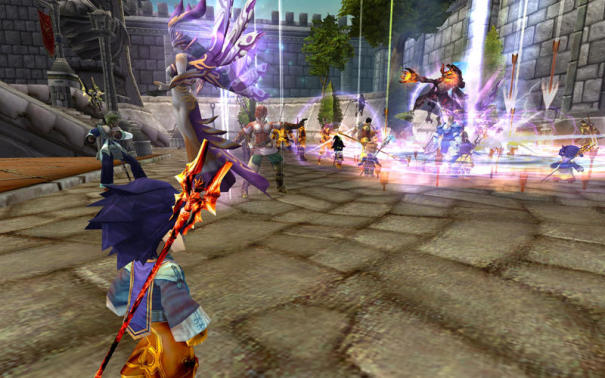


To read stories about destroyed worlds, murdered parents, genetic mutations, and mysterious power-giving wizards is to realize the degree to which the superhero genre is about transformation, about identity, about difference, and about the tension between psychological rigidity and a flexible and fluid sense of human nature. Is certainly a prominent and popular trope that recurs so frequently as to offer clues to the nature of this narrative tradition. If not a prerequisite for the superhero genre, the origin.
Smith (Department of Communication, Wittenberg University, Springfield, Ohio) use the origin story of Spider-Man as an example of how a character can be created by the persistence of a writer who has definite preferences in creating a character's personality, even if the publisher resists. Randy Duncan (comics scholar and professor of communication, Henderson State University, Arkadelphia, Arkansas) and Dr. Origins not only reflect the sociohistorical contexts in which heroes were created, but they also reflect a culture's understanding of what makes superheroes storytelling unique vehicles." Thereafter, Romagnoli and Pagnucci go on to explain why the origin story is as important to the audience as to the generations of writers who continue heroic tales.Dr. Even more than 'death' stories, crossovers, event stories, and attire changes, origin stories are the core of superheroes' existences. Pagnucci, of Indiana University of Pennsylvania, discuss in their book Enter the Superheroes: American Values, Culture, and the Canon of Superhero Literature "the nature of superhero origin stories and how the writing of these origin stories helps make superhero narratives a unique literary genre." For example, they write, "Superheroes get very complicated when it comes to their histories, but one part of their stories remains forever constant and important.
"Like a heady puree of Shelley's Frankenstein, Bob Kane's Batman, and Franz Kafka's Metamorphosis, Spider-Man's origin invokes gothic and crime fiction motifs like the ostracized genius, doomed loved ones, the misuse or misfiring of science, the gritty noir city, the driven vigilante, and the fateful 'return of the repressed'." The authors proceed to investigate these various issues of the origin story. "The entire Spider-Man concept resonates with the primary attributes of many genres and traditions," the authors say. All reveal fascinating aspects of a teenage loner fatefully 'bitten by a radioactive spider' to find himself with 'the proportionate strength and agility of an arachnid'." Duncan and Smith explain how Stan Lee butted heads with publisher Martin Goodman, who worried about an "ick factor," but Lee prevailed.


 0 kommentar(er)
0 kommentar(er)
